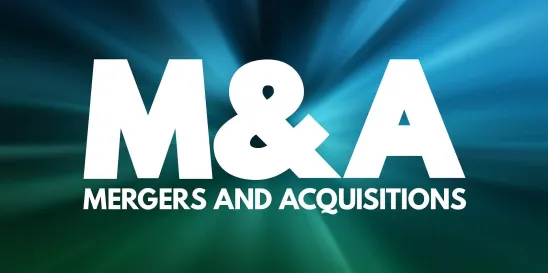On October 4, 2023, during remarks before the Society of Corporate Compliance and Ethics, Deputy Attorney General (AG) Lisa Monaco unveiled a new US Department of Justice (DOJ)-wide safe harbor policy for voluntary self-disclosures made in connection with mergers and acquisitions (M&A). Under the policy, companies can avoid criminal prosecution if they voluntarily self-report misconduct discovered at the acquired company in a timely manner, remediate such misconduct within one year and cooperate with any ensuing DOJ investigation. The policy, which Principal Associate Deputy AG Marshall Miller previewed during remarks at the Global Investigations Review Annual Meeting in New York, builds upon related DOJ guidance from the past several years encouraging and incentivizing voluntary self-disclosure of criminal misconduct, particularly in the context of M&A.
IN DEPTH
VOLUNTARY SELF-DISCLOSURE SAFE HARBOR POLICY
The voluntary self-disclosure safe harbor policy is intended to provide significant benefits to companies that promptly self-report and remediate criminal misconduct uncovered in connection with “bona fide, arm’s length M&A transactions.” Deputy AG Monaco noted that the policy is designed to “incentivize the acquiring company to timely disclose misconduct uncovered during the M&A process.” Companies that satisfy the safe harbor’s requirements, as detailed below, are entitled to a presumption that the DOJ will decline to prosecute the acquiring company for the disclosed conduct. In contrast, companies that fail to voluntarily self-report and remediate criminal misconduct discovered at an acquired company in accordance with the policy may be subject to full successor liability for such misconduct under the DOJ’s corporate enforcement policy.
The new safe harbor policy will apply across the DOJ, with each department tailoring its application to “fit their specific enforcement regime” and considering how to implement the policy in practice. As Principal Associate Deputy AG Miller stated, the policy is part of a wider effort to “ensure consistency, transparency, and predictability in corporate criminal enforcement” across the DOJ.
REQUIREMENTS FOR APPLICATION OF VOLUNTARY SELF-DISCLOSURE SAFE HARBOR
For an acquiring company to avail itself of the safe harbor, it must do the following:
- Disclose misconduct at the acquired entity within six months from the date of closing, regardless of when the misconduct was discovered (i.e., pre- or post-acquisition);
- Remediate the misconduct within one year from the date of closing of the merger or acquisition; and
- Fully cooperate with any ensuing DOJ investigation.
Acknowledging that the facts, circumstances and complexities of M&A deals differ, the timelines for disclosure and remediation are subject to a “reasonable analysis.” The DOJ has indicated some willingness to extend or, in contrast, shorten these deadlines based on the facts and circumstances of any case. Similar to existing DOJ policy, voluntary self-disclosure does not apply to misconduct otherwise required to be disclosed or already known to the public or the DOJ.
Deputy AG Monaco also made clear that typical aggravating factors (e.g., egregious or pervasive misconduct, involvement of senior executives) will not impact whether an acquiring company receives a declination under the new policy, provided that the acquiring company otherwise meets all applicable criteria. Further, under the policy, an acquiring company’s voluntary self-disclosure of misconduct at the newly acquired company will not factor into the DOJ’s recidivist analysis in subsequent matters, meaning that an acquiring company would not be considered a recidivist—or otherwise have the disclosed conduct held against it—in any future engagements with the DOJ.
IMPORTANCE OF COMPLIANCE AND DUE DILIGENCE
Deputy AG Monaco noted that the DOJ is placing “an enhanced premium on timely compliance-related due diligence and integration,” highlighting the importance of having compliance personnel involved for an acquiring company to effectively de-risk an M&A transaction. Emphasizing this point, Deputy AG Monaco stated that the DOJ’s goal is for “good companies—those that invest in strong compliance programs—[to] not be penalized for lawfully acquiring companies when they do their due diligence and discover the self-disclosed misconduct.” Similarly, Principal Associate Deputy AG Miller previously stated that acquiring companies “should not be penalized when they engage in careful preacquisition diligence and timely post-acquisition integration to detect and remediate misconduct at the acquired company’s business.”
KEY TAKEAWAYS
- While pre- and post-close diligence has always been an integral part of any deal, the new voluntary self-disclosure policy and safe harbor provide meaningful parameters and a welcome degree of certainty for companies that discover potential areas of concern during the diligence process. Notably, the safe harbor will apply irrespective of whether the acquiring company identifies the problem before or after closing. Companies that are able to identify a problem pre-closing can now rely on the presumption of a declination should they be prepared to disclose the problem within six months of closing and remediate it within approximately one year of closing.
- Compliance in diligence remains key. While the safe harbor provides a positive path forward for companies whose pre- and post-diligence processes are robust and sufficient to detect potential problems, it provides no comfort to companies that fail to identify such problems in a timely fashion. The DOJ clearly expects the compliance function to have a seat at the table during the diligence process. For conduct not discovered before or shortly after closing, the DOJ may scrutinize the acquiring company’s diligence process and compliance function as part of any ensuing investigation.
- Post-closing diligence should not be overlooked. Acknowledging that not every problem can reasonably be discovered pre-closing, the DOJ has given companies a baseline of six months post-close to further explore areas of concern or to discover issues that may not have been previously disclosed. The DOJ has also indicated some willingness to extend that timeline depending on a consideration of any relevant facts and circumstances. Ensuring that a plan for post-closing diligence is established—and, in particular, that any issues or concerns identified pre-closing are promptly investigated—will be essential for preserving a company’s ability to even consider seeking safe harbor protection.








 />i
/>i

